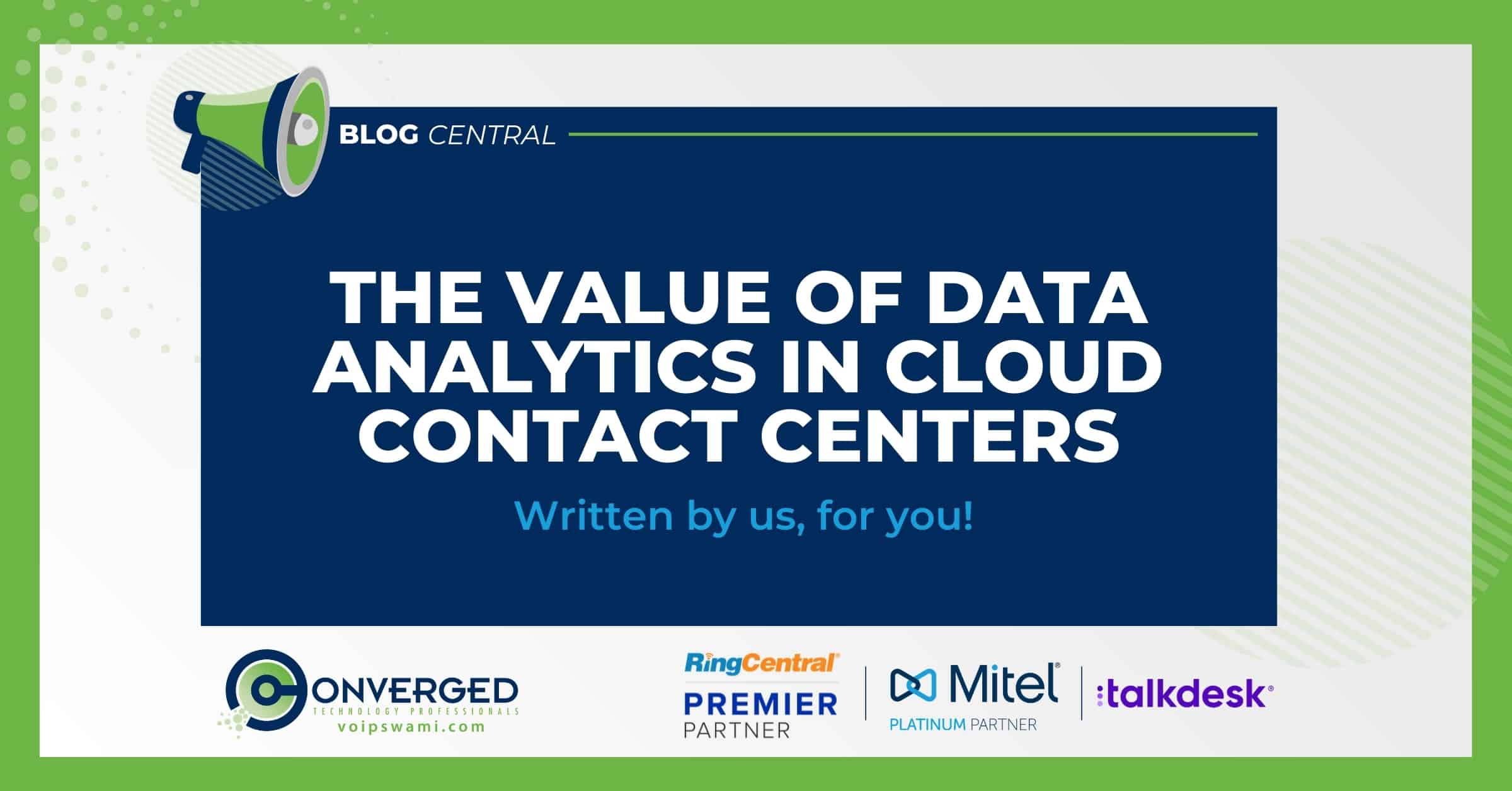
Companies are increasingly focused on brand differentiation through perfecting the customer experience across the entire lifecycle of the relationship. A common focal point to execute this strategy is the call center. The modern call center is no longer a simple customer support service that puts out fires. Instead, it is a key business unit leveraged to streamline and maximize customer satisfaction, while also upselling at scale.
Call centers striving for this level of excellence face a variety of challenges. A fundamental tension in achieving ideal performance is providing excellent customer support while upholding resource efficiency. The best call centers strike a perfect balance of great customer care while minimizing the means necessary to provide it.
The Importance of Timely Data in the Contact Center
In order to achieve this careful performance balance, management needs relevant, timely data and insightful analytics. However, gathering and measuring relevant data in a timely way is a challenge in the call center’s dynamic environment.
With dozens or even hundreds of agents handling thousands of customers per day, the volume of incoming data is enormous. There must be tools in place to collect and organize it for timely decision-making. Otherwise, call center management risks falling behind and falling into the trap of putting out fires, which is exhausting and detrimental to customer satisfaction.
Data tools help track and maximize improvements for individual agents, teams and the call center as a whole. Management is able to monitor and review performance for various stakeholders: not only for customers, but employees and management.
The desire to get these data tools for performance optimization is yet another factor driving contact centers to the cloud. Cloud contact center analytics offers managers the ability to quickly gather data in real-time to improve service quality while maximizing utilization of call center resources.
How Cloud Analytics Make a Difference
Cloud call center analytics facilitate the ability to utilize this incoming data. Analytics gives management the necessary insights to monitor and improve key service metrics as well as call center efficiency metrics as they fluctuate throughout the day.
For example, analytics help to resolve the most common customer complaints about service. Cloud analytics can provide a real-time scoreboard around hold duration, turnaround time and problem resolution satisfaction for the call center to track and hit each day.
At the same time, cloud analytics help businesses manage resource allocation across the call center. Management can analyze call volume data to ensure proper staffing levels during operating hours, thus reducing or eliminating customer hold time without leaving dozens of idle agents.

The Most Impactful Data Analytics for the Contact Center
Just as the role of the contact center is changing to become more proactive, the analytics necessary to maintain peak performance are changing. Here are the most important analytics to have in the modern call center:
Predictive Analytics is an irreplaceable tool in the modern call center. Through a rigorous review of past data such as call volume, service levels, handle time, and customer satisfaction, the predictive analysis makes it easier to prevent future problems.
With these insights in hand, management can get in front of issues before they arise: from a customer service standpoint or from a staffing standpoint. The call center will be better prepared to provide excellent customer service while also maintaining appropriate staffing levels.
This foresight helps maintain that balance of high customer satisfaction combined with staffing budget optimization. Additionally, when the call center is operating at peak efficiency, service level agreements are easier to meet.
Call Center Desktop Analytics are fundamental to process improvements for the call center. Desktop analysis helps management identify and remove redundant tasks which increase call handle time and frustrate both agents and customers alike.
Streamlining the daily workflow of agents provides a triple benefit: higher agent morale, leading to lower absenteeism and turnover, as well as higher levels of customer satisfaction.
Cross Channel Analytics is also a critical tool in contact center analytics. As customers utilize increasingly varied forms of support, a modern call center must be able to track these channels in order to tailor service to meet those preferences.
Call center agents need this data to provide more personal, satisfying service. Real-time alerts and script updates help agents to direct customers to the best channels for problem resolution according to the customer’s own preferences.
Self Service Analytics help businesses focused on maximizing customer service resources to discover ways to incentivize self-service channels. Instead of handling greater numbers of customer calls, customers are given a faster way to access the information they’re seeking online, through call menus or across company applications.
This strategy naturally reduces service costs and it is quickly becoming a preference for younger customer demographics.
The right call center data analytics can help you identify weak spots in your call center operations. With the right tools, you’ll be able to spot emerging patterns in performance and turn them into actionable insights to drive better customer service. That’s how modern contact centers are transforming what a customer expects to be a negative experience into a smooth, potentially pleasant interaction.
If your call center tools aren’t providing you with the metrics you need to meet your customers’ expectations, contact Converged Technology Professionals today. Call us at 877-328-7767 or message us here.
If you enjoyed this article you may also enjoy:
